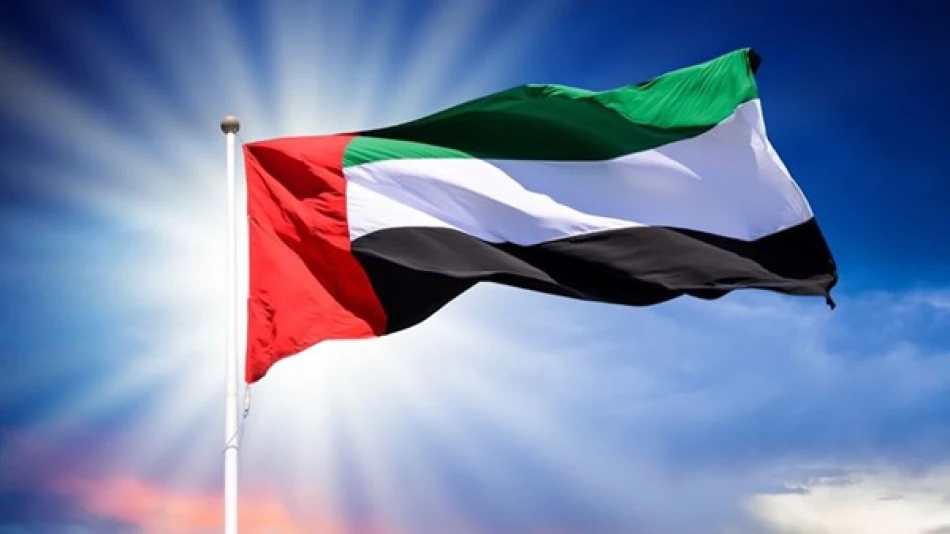
UAE International Aid: Honoring Humanitarian Volunteers' Courage, Dedication, and Resilience
UAE Positions Itself as Global Humanitarian Powerhouse Through Strategic Aid Innovation
The United Arab Emirates is leveraging World Humanitarian Day to showcase its evolving role as a major player in global crisis response, with officials emphasizing the country's commitment to frontline workers and rapid-response humanitarian solutions. The announcement signals the UAE's broader strategy to establish itself as an indispensable partner in international disaster relief while building soft power influence across multiple continents.
Leadership-Driven Humanitarian Vision
Dr. Tariq Ahmed Al Ameri, head of the UAE's International Aid Agency, outlined the country's comprehensive approach to humanitarian assistance during World Humanitarian Day commemorations. Under the direction of President Sheikh Mohammed bin Zayed Al Nahyan, the UAE has prioritized supporting hundreds of thousands of volunteers and humanitarian workers operating in crisis zones worldwide.
The initiative receives direct oversight from Sheikh Mansour bin Zayed Al Nahyan, Deputy Prime Minister and Presidential Court Chairman, highlighting the government's top-level commitment to emergency response capabilities. This high-level involvement demonstrates how humanitarian aid has become a cornerstone of UAE foreign policy rather than a peripheral concern.
Strategic Innovation in Crisis Response
Rapid Deployment Capabilities
The UAE's approach emphasizes immediate response over traditional long-term development aid, focusing on emergency relief and innovative solutions that can be deployed quickly to affected regions. This strategy positions the country as a first responder in global crises, potentially increasing its diplomatic influence in affected regions.
Al Ameri specifically highlighted the UAE's provision of medical supplies, shelter, food, and water across multiple continents, suggesting a logistical network that rivals established humanitarian organizations. This infrastructure investment likely serves dual purposes: genuine humanitarian relief and strategic positioning in key global markets.
Capacity Building Focus
Beyond immediate relief, UAE programs target the professional development of humanitarian specialists, indicating a long-term vision for the sector. By training and supporting frontline workers including doctors, nurses, engineers, and support staff, the UAE is building sustainable relationships with humanitarian professionals who may later facilitate access and cooperation in their respective regions.
Geopolitical Implications
The UAE's humanitarian expansion mirrors similar strategies employed by other Gulf states seeking to diversify their international influence beyond energy exports. This approach parallels Qatar's sports diplomacy and Saudi Arabia's Vision 2030 cultural initiatives, representing a broader regional trend toward soft power projection.
The timing of these announcements coincides with increased global humanitarian needs driven by climate change, regional conflicts, and economic instability. By positioning itself as a reliable crisis responder, the UAE may be anticipating future opportunities to mediate in international disputes or secure preferential trade relationships with recipient nations.
Market and Economic Considerations
For international development contractors and humanitarian organizations, the UAE's expanded role represents both opportunity and competition. The country's emphasis on innovation and rapid response could drive technological advancement in the sector while potentially challenging traditional aid delivery models dominated by Western organizations.
The UAE's integrated approach—combining government resources, private sector capabilities, and technological innovation—may prove more efficient than conventional humanitarian frameworks, potentially reshaping how international aid operates in the coming decade.
Most Viewed News

 Layla Al Mansoori
Layla Al Mansoori






